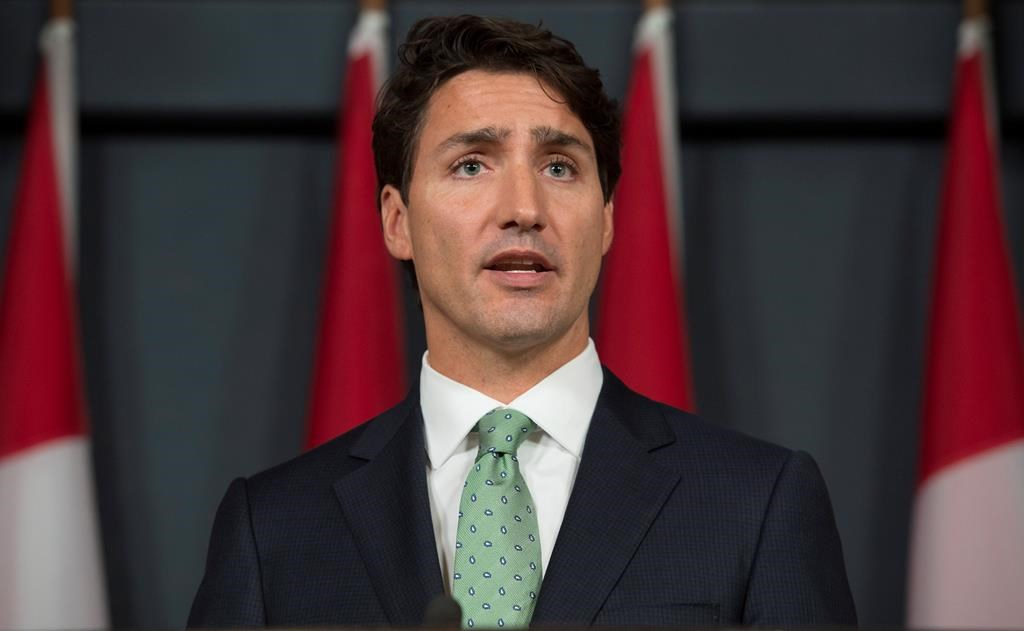Support strong Canadian climate journalism for 2025
The Canadian government appears intent on giving the massive CDN$15 billion arms deal with Saudi Arabia the go-ahead. Trudeau’s Liberals have come under fire amidst accusations that the equipment will be used to perpetrate human rights abuses and war crimes.
The contract, initiated by the Stephen Harper government and signed off by Justin Trudeau’s Minister of Foreign Affairs, Stephane Dion, sees Canadian-made Light Armoured Vehicles (LAVs) exported to the oil-rich kingdom.
Trudeau’s government has now even agreed to allow testing of the armoured vehicles on Canadian military bases.
This should come as no surprise. Canada has trafficked in the arms trade for years—and very successfully from a financial point of view. Saudi Arabia has long been a favourite customer.
Canada a major player in the international arms trade
With the Saudi deal, Canada has now become the second largest vendor of arms to the Middle East, behind only the US. It is also the sixth largest arms trader in the world, according to IHS Jane’s, the world’s leading publisher with respect to military spending.
These are rather incredible figures given the relatively small size of Canada’s overall economy.
In addition, the estimates do not include Canada’s exports to the US since military equipment sold to companies south of the border do not require authorization through export permits. Project Ploughshares, an NGO which monitors Canada’s arms trade, suggests that military hardware and software sold to the US are worth more than double the exports to all other states combined.
In many cases, these components are then assembled into larger weapons systems which are subsequently exported out of the US. Consequently, while Canada might not sell directly to, for instance, Pakistan, parts found in weapons in Pakistan are made by Canadian companies.
Which means of course that our overall involvement in the international arms industry is much greater.
Canadian weapons and civilian casualties
It is rather amusing—in a dark, revulsive sort of way—that Canada is a world leader in peddling the machinery of death, given our national mythology as a peace-keeping, kind, loving nation.
Our Prime Minister’s sunny ways apparently don’t include innocent civilians, including no small number of children.
But that is the point. We should be very clear on this. Weapons—or parts of them—made in and sold out of Canada kill innocent people around the world.
Specifically with respect to the Saudi context, as of the previous summer, the UN states that almost 4,000 civilians have been killed by the Saudi-led coalition’s war in Yemen. This includes the injury and death of over 1000 children. According to UN Secretary General Ban Ki-moon, children and other non-combatants were killed in deliberate attacks on schools and hospitals.
Previously sold Canadian-made armoured vehicles have already been placed in the Yemeni theatre, as reported by the Globe and Mail in February 2016.
The chilling evidence of civilian deaths led the UN to temporarily blacklist Saudi Arabia in June 2016. The Canadian has tepidly defended its decision to move forward in its largest single arms deal to the desert kingdom, with Dion meekly explaining that there is no hard evidence that Canadian exports have been used against civilians.
Dion is either ignorant, or—as is more likely—disingenuous. Canada has been selling arms to the Saudis for decades. The current bloodbath in Yemen is not an aberration but part of a consistent pattern. The Saudi regime flagrantly violates human rights at home and abroad.
To highlight a recent example, it is probable that Canadian-made LAVs—similar to the ones included in the current deal—were used in the harsh suppression by Saudi forces of the peaceful protests in Bahrain during the Arab Spring in 2011. It seems highly unlikely that Dion and Trudeau are unaware of this, and in fact the Canadian government does not deny that the vehicles were in Bahrain—though it does stop short of admitting that they were used directly against civilians.
Canadian military equipment sold not only to Saudi Arabia
Canada also sends military products directly to Algeria, China, South Sudan, and Colombia, to name a few countries with dismal records when it comes to human rights abuses. And our stamp is on weapons in many other countries thanks to re-exports from the US and elsewhere.
It would seem self-evident that the onus would be on any country professing adherence to the rule of law to ensure that weaponry of any sort—with its obvious lethal capability and abuse potential—does not end up being used in violation of international accords. Dion says he will revoke any permits in the armoured car deal should evidence come to light that the Saudis are using them against civilians.
But is the Canadian government even looking for evidence? And if we are leaning on the Saudi regime—or any other despotic client for that matter—to self-monitor, well, we might as well leave the fox to guard the henhouse.
The Canadian government—whether it is that of Trudeau today, or Harper and Chretien before him—is at great pains to keep quiet about our nation’s prominent role in the grisly, but—and this of course is paramount—highly lucrative business that is arms trafficking.
Nevertheless, Canadians should be under no illusions.
Write to Justin Trudeau, Stephane Dion, and the MP in your own riding, demanding that Canada stop selling arms—or component parts—to any entity accused or suspected of being party to war crimes and human rights abuses.



Comments
A "real" feminist, or anyone with integrity that cared about human rights, stopping war crimes, peace keeping - rather than warmongering, blood money and a plethora of other very obvious reasons, would keep the ocean between trade deals and any chummy relationships with dictatorships and oppressive regimes. Like China, for example. The companies in this deal are already under fire (pun!) for selling armoured vehicles to embargoed countries and should be twenty to The Hague for trial, then put out of business on the way to jail.